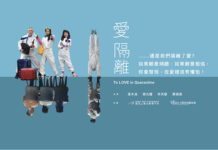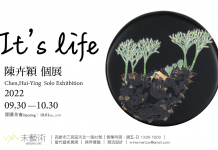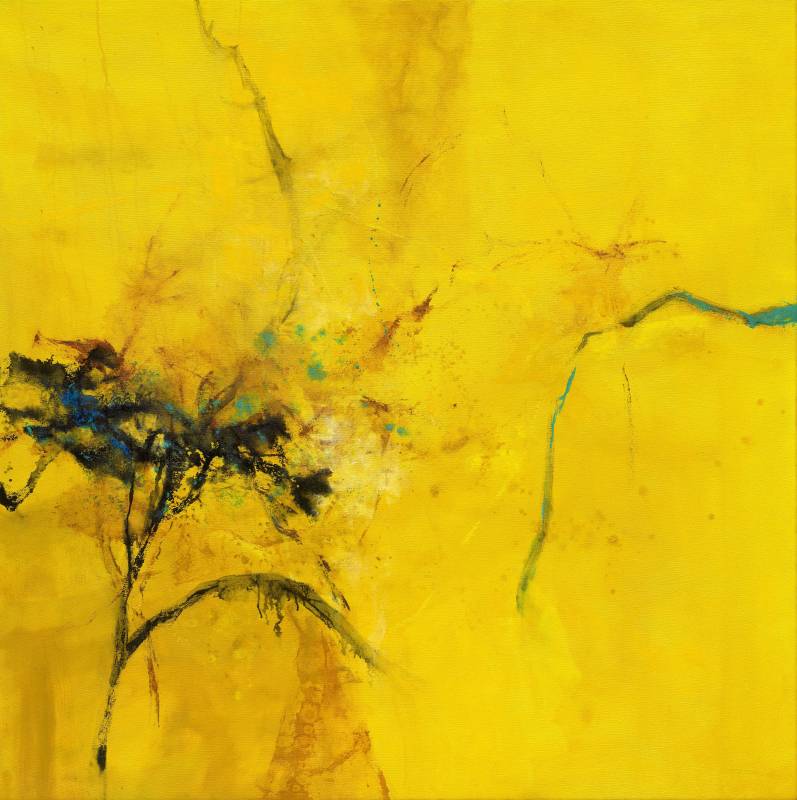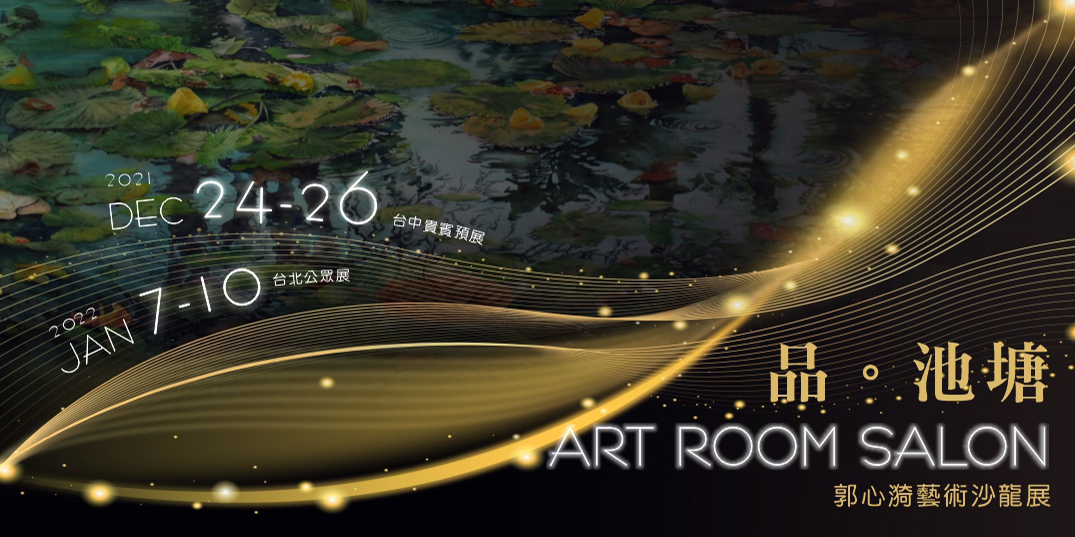
-
展期
日期:2021-12-18 ~ 2022-02-26
-
地點
臺北市洲子街79-1號8樓 -
參展藝術家
王德瑜、王榆鈞、劉文瑄
王叡栩 – 策展
Curated by Wang Rui-Xu
王德瑜 – 劉文瑄 – 王榆鈞
Wang Te-Yu – Liu Mia – Wang Yujun
一切始於一個靜好的午後,無意中閱讀到萊布尼茲(Gottfried Wilhelm Leibniz)的一個叩問:「為什麼一切都必須是由我們對外物的察覺得來,為什麼就不能從我們自身之中發掘出點什麼呢?難道我們的心靈就這樣空虛,除了外來的影像,它就什麼都沒有?¹」開啟了此展的契機。如我們的心靈不倚賴外物,那麼是否在每個人的心靈中都內嵌著天賦的原則,潛存著那些不會時刻為我們所察覺的?
Leibniz: “Why must we acquire everything through awareness of outer things and not be able to unearth anything from within ourselves? Is our soul in itself so empty that unless it borrows images from outside it is nothing?”1 which inspired this exhibition. If our soul did not rely on outer things, would everyone’s soul be embedded with God-given principles, and the sub-existence of those we aren’t always aware of ?
《潛存說-那些不會時刻為我們所察覺的》分別從「觸-動」、「聽-音」、「視-觀」覺出發,邀請藝術家王德瑜、王榆鈞、劉文瑄,於生命的輕重之際指涉因不可見而存在,因消失而再現,那些不會時刻為我們所察覺卻一直潛存的東西。觸感不易被大腦儲存,但卻是容易產生情感記憶的,「王德瑜-動體」透過觸覺激活感知,用去規則的形體解構理性與語言的可預測性, 以「直覺-共感」於物理空間之外,量度內心的抽象潛能空間,通過物質的觸碰,撼動感知的不可觸動。「王榆鈞-音閾」用聲音傳達Saudade的不可譯,以不可視的聲符消解語言的僵固性,讓音成為「轉瞬-永恆」的載體,表述生命同時處於靠岸與離岸的共態中,有著一種永遠無法觸及的臨界狀態。 「劉文瑄-觀界」讓虛空的塵埃於可控與不可控之際生成差異,透過重複性指涉時間,點點降落至平面,再層層墜落至空間,穿越二維平面降臨至另一個三維空間,最終著陸於心靈中,內觀「存在-虛無」的不可覺察。
“Sub-existence – Those We Aren’t Always Aware of” starts from the senses of “touch-movement,” “hear-sound,” and “see-view,” inviting artists WANG Te-Yu, WANG Yujun, and LIU Mia, to reference those sub-existences we are not always aware of between the lightness and heaviness of life that exist through invisibility and reappear through disappearance. Touch is not easily stored in the brain, but it easily creates emotional memory. “WANG Te-Yu – Body of Movement” activates perceptions through touch, and uses deregulated forms to deconstruct the predictability of rationality and language, measuring the abstract inner space of potentials beyond the physical space with “intuition – sympathy,” and rocking the untouchability of perception through material collision. “WANG Yujun – Threshold of Sound” uses sounds to convey the untranslatability of Saudade, using invisible notes to dissolve the rigidity of language, so that sound becomes the carrier of “instant – eternity” to express that life is simultaneously in the co-state of arriving on shore and going offshore, a critical state that can never be reached. “LIU Mia – Realm of View” creates discrepancy of dust in the void between controllable and incontrollable, referring to time through repetitiveness; the dust falls grain by grain onto a plane, layer to layer into a space, penetrating the two-dimensional plane to arrive at another three-dimensional space, finally landing on the soul for introspection of the imperceptibility of “existence – nihil.”
關於心靈,洛克(John Locke)於「白板說(Tabula rasa)」中提及人心如一塊白板,一切起源於經驗。然而,於我們的心靈深處,有些東西不是靠經驗來說明,也不依靠感覺而見證,而是來自於內賦的,一直潛存於靈魂與身體。因此,萊布尼茲將心靈比喻成一塊「有紋路的大理石(Veined marble)」,必須透過「鑿刻」使這些表面不可見但卻沈存於石頭中的紋路顯現,如同於心靈透過「感性聯繫」使那些不會時刻為我們所察覺的東西乍現,伴隨著與它相應的是一種常常感覺不到的某種「微知覺(petites perception)」,指微小的、游移於可意識邊緣的感知,心靈不易意識到微知覺的存在,但會受其積累效應所影響,就是這些微知覺牽引出這種難以名狀的東西,潛在於心靈的某個面向上,形成雙重運動,滿載過去亦孕育未來,以無窮的姿態,在許多時刻揭示了我們自身,而我們並沒有發現。
About the soul, John Locke mentions in “Tabula Rasa” that the human heart is like a whiteboard, and everything arises from experience. However, deep down inside, some things are not proven by experience, and not witnessed by feelings; they are inner gifts that have always sub-existed in the soul and body. Thus, Leibniz compares the soul to a “veined marble,” and “carving” is required to reveal these patterns hidden in the rock that are invisible on the surface, just like the soul making the things we are not always aware of to suddenly appear through “sensual connections,” accompanying certain corresponding “petites perceptions” that are often unperceivable; they refer to the tiny perceptions that wander on the fringe of perceptibility. The soul does not easily perceive the existence of petites perceptions, but will be influenced by their cumulative effect. It is these petites perceptions that draw out these indescribable things that sub-exist in a certain dimension of the soul, forming a dual-movement that carries the past and nurtures the future, and, in an infinite state, discloses our self in various moments, but we are unaware of that.
此展並不特別去投射出一個具體的對象物,而是提供心靈一個感性聯繫的開放場域,將主權交予觀者手中,使其得以任意穿梭於藝術家的視、觸、聽的流動裡,對內開啟心中那些不是時刻為我們所察覺的,那些不是分秒為我們所敞開的,喚起每個人心靈中那潛存的紋路。
This exhibition does not specifically project a concrete object; rather, it offers the soul an open site for sensual connections, handing over the sovereignty to the viewers, allowing them to freely weave through the artists’ visual, tactile, and hearing flows and open inwardly the things that are not constantly perceived by us, not always opening up to us, awakening the sub-existing patterns within everyone’s soul.
¹ 引自萊布尼茲,《人類理智新論(上)》(台北市,五南出版,2020年),頁93。Gottfried Wilhelm Leibniz, New Essays on Human Understanding, (Glasgow, Cambridge University Press,1996) ,53-54.
¹ Gottfried Wilhelm Leibniz, New Essays on Human Understanding, (Glasgow, Cambridge University Press, 1996), 53-54.
———————————————————————————————————
策展人 – 王叡栩
現任關渡美術館策展人,養成背景為政治哲學、國際關係、文化研究與藝術評論。長期關注表演藝術與政治藝術,主要研究為資本主義、技術哲學與虛擬真實之關係,致力於探究物理、現實與虛擬空間對於人類感知的關係性,結合跨領域的視角提出另一種的觀看與詮釋藝術的可能性。近期參與的策展計畫有2021年「挑釁世界:對中心主義的反抗」(台灣)、2020年「來去匆匆」(台灣)、2019年「壞結構」(台灣),策劃系列講座有2020年「2020關渡雙年展—後疫情時代的再編碼」。文章散見於台新藝術基金會《ARTalks》、Ocula。
Curator – Wang Rui-Xu
Currently a curator at Kuandu Museum of Fine Arts and comes from backgrounds in political philosophy, international affairs, cultural studies, and art criticism. Has long focused on performing art and political art tech-art, and studied the relationship between capitalism, philosophy of technology, and virtual reality. Strives for the research in the relations of physical, real and virtual spaces on human perceptions, proposing alternative possibilities of viewing and interpreting art through an interdisciplinary perspective. The exhibitions and lectures she curated include: Provoke:Opposing Centrism (2021,Taiwan), As Time Goes By (2020,Taiwan), NON-Conctruction(2019,Taiwan), 2020 Kuandu Biennale —RECODING IN THE POST-PANDEMIC ERA (2020,Taiwan). Articles are published in ARTalks, Ocula.
———————————————————————————————————
藝術家 – 王德瑜
王德瑜的作品一向訴求簡單的概念,她一直嘗試著在極簡的媒材裡探索空間的存在感,並進而思考人於空間裡的存在形式與狀態。在她一系列以作品序號為標題的空間創作裡,呈現了對空間主題的持續性研究,轉換空間與人的主體∕客體關係,並讓身體的感官經驗取代視覺經驗,以觀眾與作品的互動體驗值作為一個藝術家提供「進入」作品精神的入門之徑,一個表徵藝術家主觀意識的作品卻包容了參與觀眾的主觀經驗,在互動的機制裡築構了一個共感空間。
Artists – Wang Te-Yu
Wang Te-Yu’s works have always sought simple ideas. She has always tried to explore the feeling of spatial presence with simple media, and go on to meditate on the existential form and situation of people in these spaces. In a series of spatial creations whose titles begin with a number, she has pursued continuous research into the spatial theme, transforming the subjective/objective relationship between spaces and people, and letting the body’s sensory experience replace visual experience. In this way the interactive experience between viewers and works functions directly as a pathway that the artist provides for “entry” into the spirit of the work—a work that symbolizes the artist’s subjective consciousness. The work also unexpectedly encompasses the participating viewer’s subjective experience and constructs a commonly-sensed space through the mechanism of interaction.
wangteyu.com
藝術家 – 劉文瑄
視覺藝術家,目前於台北創作、生活。
2007年於美國舊金山藝術學院畢業後,進入紐約市立大學杭特學院藝術研究所。作品於各大美術館及藝術空間展出,包括雪梨白兔美術館,北京中國美術館、布達佩斯德維格當代美術館、荷蘭CODA美術館、新加坡濱海藝術中心、韓國OCI美術館、台灣美術館及亞洲雙年展等。曾入圍2016香港Sovereign傑出亞洲藝術獎決選、參與蘇格蘭格蘭菲迪藝術家駐村計畫、獲選文化部甄選赴法國西帖國際藝術村。藏家遍及歐美、亞洲各地,包括瑞士烏里 · 希克藏品、埃米爾 · 愛馬仕藏品等。
以塗畫(Drawing)般開放自由的狀態切入藝術創作,藉由日常生活中的各種心理感受與身體感知,與當下所接觸的事物之間遊蕩撞擊,引發一連串尋索「對話」的創作,創造出與萬物般相連的詩意情境。也因此其視覺藝術形式看似多元發展,雖涵蓋空間裝置、紙張雕塑、平面塗畫、攝影、錄像裝置、植栽雕塑等等,實則悠遊其間一以貫之。
Artists – Liu Mia
Liu Mia is a visual artist who lives and creates in Taipei.
After receiving her B.F.A. from San Francisco Art Institute in 2007, she enrolled in the M.F.A program, Hunter College of the City University of New York. Her works have been exhibited across major art museums and art spaces and collected by many throughout Europe, America, and Asia, including Uli Sigg Collection (Switzerland) and the Emile Hermès Collection (Taiwan).
She probes into art practices via an open, liberal status like drawing. Through the traverse and collision of various psychological and physical experiences in life with the things in contact in the moment, she catalyzes a series of creations in search for “dialogues,” producing poetic scenes where everything is connected. Hence, while it is as if she produces visual art in diverse forms, ranging from spatial installation to paper sculpture, drawing, photography, video installation, botanical sculpture, etc., Liu roams in the midst of and connects them as one.
mialiustudio.com
藝術家 – 王榆鈞
音樂藝術家、電影及劇場配樂家、歌者。持續走在邊界,喜歡觀察存在於生活周遭的事物,讓日常的片刻轉化成音樂裡各種表情。近年特別關注實驗聲響與身體的對話、影像共同創造出的內在聽覺空間,在詩句縫隙間的音樂風景。探究時間軸線裡往未來未知的聲音,同時也向著古老大地的呼喚。期待能繼續在世界不同角落創作,紀錄當下空氣裡的振動,以及生活的氣息;在詩與歌的脈絡裡找到一種文化對話的方式。
已出版音樂作品有《凹》EP、《沙灘上的腳印》概念專輯、生命幻想曲之《初生》《長大的那一天》《消失》劇場音樂繪本專輯、王榆鈞與時間樂隊《頹圮花園》、王榆鈞與時間樂隊《原始的嚮往》專輯、北師美術館《不朽的青春》同名展覽音樂專輯等。近期配樂作品有電影《訪客》、《野雀之詩》, VR《留給未來的殘影》,短片《須菩提的眼淚》、《肇事者逃逸》、《謎絲》、《Break and Break ! 無用之地》周書毅身體錄像展演、劇場作品《阿忠與我》、影集《四樓的天堂》等。
Artists – Wang Yujun
Music artist, film and theatrical composer, singer. Keen on interdisciplinary exploration, she has developed a stereoscopic approach to shaping the sound of music. Her practice draws upon observations of everyday life and ordinary people, transmuting mundane and fleeting impressions into a sonic documentation of complex emotional shades. In recent years, attention has been shifted onto experimenting with the inner hearing space co-created by the dialogue between sounds and body, as well as images, and the musical sceneries in the gaps between verses of poetry. She explores the unknown sounds towards the future on the temporal axis, while also calling for the ancient earth. For the future, Yujun looks forward to making music in various corners of the world, recording vibrations that are native to the local atmosphere and their rhythms of life; hopefully uncovering through indigenous poems and songs new ways to bringing cultures into dialogue with one another.
Yujun’s published work include: the concept EP “Concave”, concept album “The tracks on the Beach”, life fantasies “The Birth”, “The Day of Growing Up and “La Disparition” Theatrical music illustration album, and YujunWang & TIMEr Band’s “Abandoned Garden” CD, and “The Initial Longing” album, as well as the album of MoNTUE’s “The Everlasting Bloom” in the same title. More recent soundtracks include movies “Visitors” and “Wild Sparrow;” VR “Afterimage for Tomorrow;” short films “Tears of Subhuti,” “Hit and Run,” “Myth;” “Break and Break!” CHOU Shu-Yi Dance Video Exhibition; play “The Center;” TV series “Heaven on the 4th Floor.”
yujunwangsound.com
———————————————————————————————————
TAO ART SPACE
由Vicky Chen(陳薇捷)和父親共同創立,是一個嶄新型態的藝術空間,結合收藏和展示的功能。空間由日本建築大師青木淳(Jun Aoki)操刀,以「都市園林」為概念,打造出融合古典、經典、當代藝術的生活場域,透過白立方空間、茶室、起居室等,體現藝術融入生活的可能性。TAO ART 期許自己是一個多元可能的藝術空間,以有趣生活化的方式將藝術介紹給觀眾,一方面支持台灣當代藝術躍上國際,另一方面將國際資源引入台灣,定期舉辦當代藝術展覽、座談與交流,作為一個台灣與國際接軌的平台。
About TAO ART SPACE
Jointly founded by Vicky Chen and her father, TAO ART is a new kind of art space that combines the functionalities of collection and showcase. The space is designed by famed Japanese architect Jun Aoki, who has created a living space that fuses classical, classic, and contemporary arts, through the concept of “urban garden.” Through the white-cube space, tea room, and living room, the design manifests the possibilities of blending art with life. TAO ART strives to become an art space of diverse possibilities, and introduces art to audience through fun and everyday means, supporting Taiwanese contemporary arts on the international stage on one hand, and introducing international resources to Taiwan on the other. TAO ART regularly organizes contemporary arts exhibitions, seminars, and exchanges, acting as a platform where Taiwan connects with the world.
內文引用:TAO ART SPACE
圖片來源:TAO ART SPACE
文章更新2021/12/22






